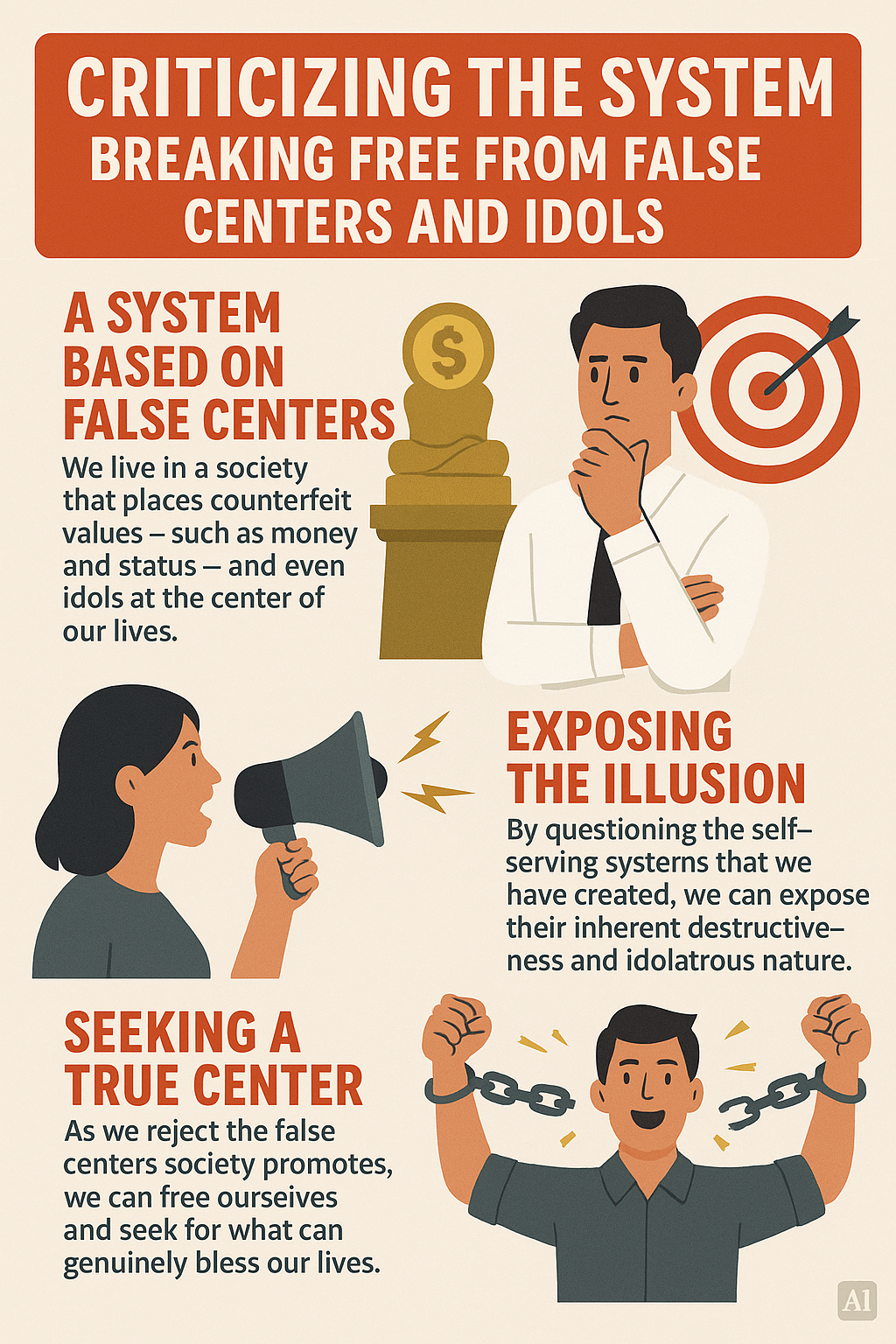“When you criticize a system, they think you criticize them—and that is of course because they accept the system and identify themselves with it.”
— Thomas Merton
Thomas Merton’s observation is piercingly accurate, and it explains much of why change is so difficult in our society, organizations, religious institutions, and even families. His words cut to the heart of a universal psychological phenomenon: people confuse the systems they belong to with their own identity.
When you point out the flaws in a system, you aren’t just challenging a set of rules or structures — you are, in their minds, attacking them personally. This leads to immediate defensiveness, emotional reactivity, and often hostility.
But why does this happen? And more importantly, how do we escape it?
How We Become Trapped: The Matrix, the Box, and False Centers
The Matrix: Living in a Manufactured Reality
The movie The Matrix powerfully symbolizes the experience Merton describes.
The “Matrix” represents a fabricated, manipulative system that conditions individuals to believe in a false version of reality. People live in illusion, thinking their experiences are free and authentic when, in fact, they are structured by forces seeking to control or use them.
In real life, these forces might be political ideologies, cultural narratives, corporate consumerism, educational indoctrination, or even religious traditions twisted into tools of manipulation.
Once people internalize this system as “reality”, criticizing it feels like a personal attack.
If you live your whole life inside a dream, waking up feels like death.
The Box: Self-Justification and Emotional Distortion
The Arbinger Institute describes the psychological trap as “the Box”:
A mindset where we see others not as people but as obstacles, tools, or irrelevancies. Once inside the Box:
- We justify our own poor behavior.
- We blame others for the world’s problems.
- We see criticism as an attack instead of an opportunity for growth.
When someone criticizes the system that we have self-justified and invested in, it threatens our entire web of rationalizations, causing a violent defensive reaction.
False Paradigms and Centers (Covey)
Stephen Covey, in The 7 Habits of Highly Effective People, explains that most people build their lives around false centers:
- Money-centered
- Possession-centered
- Social status-centered
- Religious-centered (in form, not spirit)
- Spouse- or family-centered
When your life is organized around an idol or a false paradigm rather than true principles, your identity becomes fragile.
Thus, when the system you’re centered on is criticized (government, church authority, political party, celebrity culture), you react not with curiosity, but with anger, fear, and denial.
Why Do We Cling to False Systems?
Fear of meaninglessness:
If the system is false, then everything built on it feels meaningless. People are afraid to confront the void.
Comfort and convenience:
It’s easier to stay asleep than to face painful truths.
Tribal belonging:
Humans are social creatures. Being part of “the tribe” — even a dysfunctional one — feels safer than standing alone.
Ego investment:
We’ve worked hard to climb certain ladders (careers, religious status, academic achievements).
To admit the ladder is leaning against the wrong wall would mean acknowledging years of effort built on illusions.
How Do We Break Free? (The Solution)
Adopt Principle-Centered Living (Covey)
Instead of centering your life around people, institutions, ideologies, or possessions,
build your life around timeless, universal principles:
- Integrity
- Courage
- Compassion
- Respect for truth
- Service to others
- Personal responsibility
When your foundation is principles, no external system’s failure can destroy your peace or identity.
Escape the Box (Arbinger)
The first step out of the Box is seeing others as people, not objects.
- Recognize that every human being — even critics or opponents — has hopes, fears, and struggles just like you.
- Understand that someone challenging your system is not necessarily your enemy; they may be offering you a lifeline to growth.
Detach from the Matrix (Awareness)
The Matrix cannot tell you who you are.
- Develop awareness of how culture, media, politics, and religious dogma might have shaped your worldview.
- Question everything — not with bitterness, but with honest curiosity.
Ask:
- Is this system helping me grow in truth and virtue?
- Or is it simply keeping me comfortable and asleep?
Recognize the Role of Idols (Gileadi)
Avraham Gileadi teaches that spiritual decay often occurs because people worship idols —
whether literal statues, material wealth, political leaders, or corrupted institutions.
Idolatry is not just primitive rituals; it is misplaced loyalty.
Instead of relying on idols, renew your loyalty directly to God, truth, and eternal principles.
Courage to Stand Alone
Understand that stepping outside the system will often feel lonely:
- Friends, family, or colleagues still trapped in the system may reject you.
- You may feel isolated.
- You may face criticism or mockery.
But remember:
It’s better to stand alone in truth than to march with the masses into destruction.
“The crowd is the lie.” — Søren Kierkegaard
Conclusion: Becoming a Light in the Darkness
Criticizing the system is not about bitterness or rebellion.
It’s about loving truth more than comfort, and loving people enough to awaken from deception.
- Live by principles, not politics.
- Love people, not systems.
- Seek truth, not approval.
- Be awake, even when the world dreams.
When you do this, you will no longer defend broken systems out of fear.
You will become free — and help others to awaken, too.





